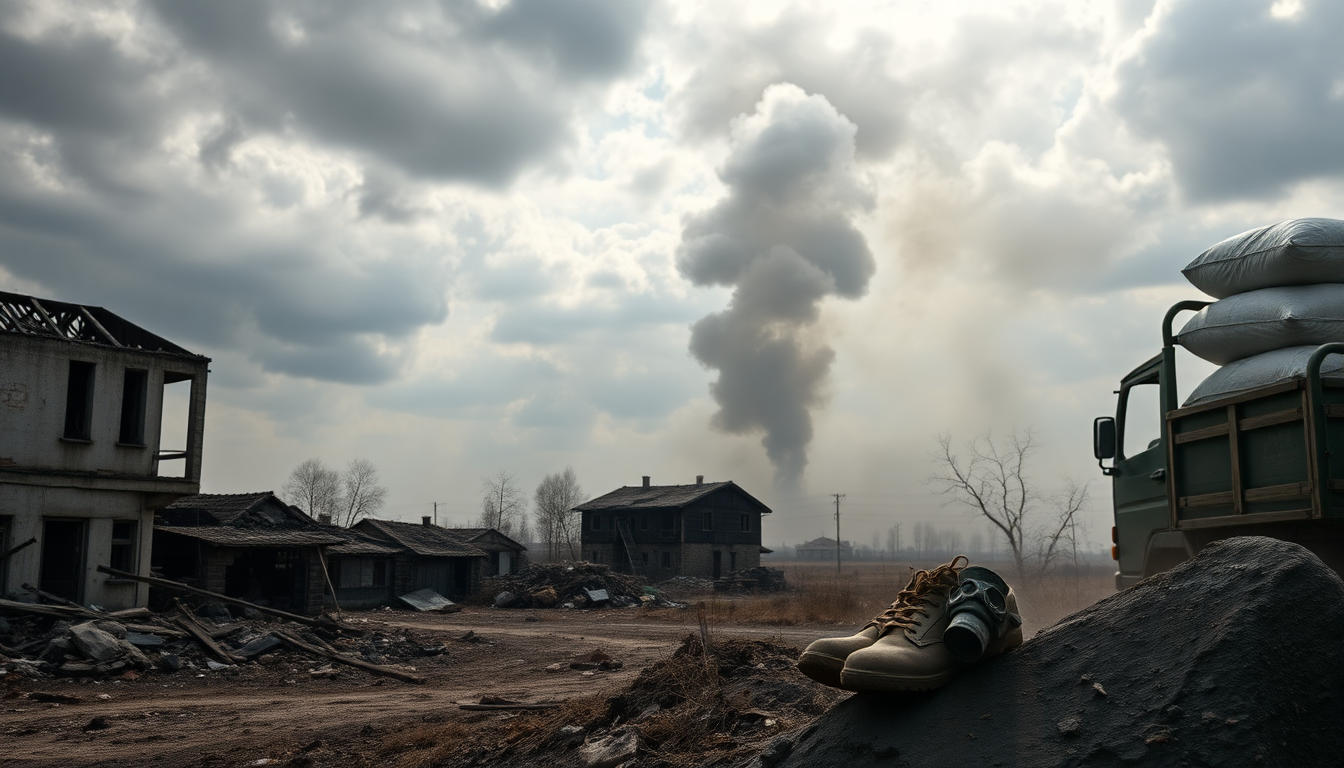Table of Contents
The ongoing conflict in Ukraine has taken a deeply concerning turn, with troubling reports emerging about the use of chemical warfare by Russian forces. Why would a government resort to such inhumane tactics? It seems the goal here is to inflict maximum suffering on the Ukrainian people, pushing them to surrender. Kaja Kallas, the European Union’s top diplomat, has raised alarms about this disturbing trend, citing intelligence assessments that indicate a significant increase in the use of these banned weapons. As global awareness expands, it becomes increasingly crucial to grasp the implications of this situation within the larger framework of the international community’s response.
The alarming rise of chemical weapon usage
According to Kallas, intelligence reports from Germany and the Netherlands reveal that Russia has deployed chemical weapons over 9,000 times since launching its full-scale invasion. Can you imagine that number? This shocking statistic highlights a disturbing escalation in tactics designed to instill fear and desperation among the Ukrainian population. Kallas expressed her concern, stating, “As the intelligence services are saying this is intensifying, I think it’s of great, great concern.” This sentiment resonates throughout Europe, where leaders are increasingly alarmed about the humanitarian ramifications of such actions.
Interestingly, the **Chemical Weapons Convention**, which many nations—including Russia—have signed, explicitly prohibits the use of chemical arms. Yet, the current situation starkly reveals a blatant disregard for these international agreements, raising serious questions about accountability and the effectiveness of global governance structures. The use of chemical weapons not only undermines international law, but also poses severe risks to civilian populations, further complicating the humanitarian crisis unfolding in Ukraine.
International repercussions and responses
As the conflict escalates, the geopolitical landscape is shifting rapidly. Recent comments from U.S. President Donald Trump suggest a potential increase in sanctions against Russia, aimed at deterring further aggression. But here’s the catch: the conditional nature of these sanctions is frustrating European allies, who are pushing for a more immediate and robust response to Russia’s escalating tactics. The idea of secondary sanctions, contingent on whether Putin decides to cease hostilities, reflects a cautious approach that may not match the urgent needs on the ground in Ukraine.
Additionally, the U.S. decision to allow NATO to procure American weapons for Ukraine has sparked discussions in Europe. While Kallas welcomed the prospect of additional military support for Ukraine, she underscored the necessity for shared responsibility among allies, pointing out the financial implications for European nations. In light of this, there’s a clear need for a cohesive strategy that balances military aid with diplomatic efforts aimed at resolving the conflict.
The humanitarian crisis and the need for action
The ongoing use of chemical weapons in Ukraine has dire humanitarian consequences. As civilians suffer the most from these attacks, the international community faces a moral imperative to act. Governments must ensure that aid agreements, including those involving Israel, are upheld and that humanitarian assistance reaches those most affected by the violence. Are we doing enough to help?
Given these developments, Europe stands at a critical juncture in its approach to the Ukraine conflict. The recent no-confidence vote against the European Commission president indicates a potential shift in political dynamics that could affect the EU’s foreign policy and its response to Russia. As the situation continues to evolve, there is an urgent need for coordinated international action to tackle both the immediate humanitarian needs and the long-term implications of Russia’s aggression.
In conclusion, the use of chemical weapons in Ukraine marks a pivotal moment in the conflict, raising ethical, legal, and humanitarian questions that demand a robust and unified response from the international community. As we move forward, vigilance and decisive action will be essential in countering the threats posed by such tactics and supporting the resilience of the Ukrainian people.


